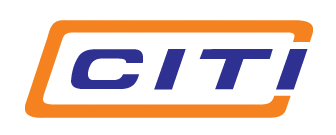Contribution of Confederation of Indian Textile Industry (CITI) in Skill Development:
CITI as a board member of the National Skill Development Corporation (NSDC) and a promoter of the Textile Sector Skill Council (TSC), plays a pioneering role in creating and enhancing the availability of skilled force for the Textile and Garment sector.
CITI represents the textile industry on various textile-related Committees of the Government. CITI is closely associated with the 13 major textile associations and Export Promotion Councils. CITI as an industry association looks forward to the active Involvement of all stakeholders to carry out skill development schemes and derive monetary benefits from state and central government-funded schemes.
In the year 2020, CITI itself enters the skill development through the Samarth Project, Ministry of Textiles to facilitate the Industry to impart the right kind of training to workers on state-of-the-art technologies.
Keeping the industry demand in mind of having a pool of skilled workforce ready for achieving the ambitious targets set for the textile and Garment industry. The primary objective of CITI is to develop world-class skilled manpower for all segments of textile manufacturing starting from Textile and Garment finishing which includes the organized Textile and Garment industries.
Now, CITI is implementing Pradhan Mantri Kaushal Vikas Yojna (PMKVY) 4.0 at the Pan India level under the Upskilling (through RPL) project.
About PMKVY 4.0
Pradhan Mantri Kaushal Vikas Yojana (PMKVY) is the flagship scheme of the Ministry of Skill Development and Entrepreneurship (MSDE). The objective of this Skill Certification scheme is to enable Indian youth to take up industry relevant skill training that will help them in securing a better livelihood.
PMKVY 4.0 under the umbrella scheme of the ‘Skill India Programme’ is being implemented between FY 2022-2026. PMKVY 4.0 is being realigned with a core focus on making the existing skill ecosystem more flexible, swift, and geared to meet the current challenges and emerging needs through process simplification.
Objectives of PMKVY 4.0
- Promote an enabling ecosystem for the youths to get skilled and choose a career path aligned with their abilities and aspirations.
- Enable delivery of skill training in a market-oriented and demanddriven manner by making the existing skilling ecosystem more flexible, swift, and geared to meet the emerging demand along with emphasis on improving the employability of candidates.
- Process simplification of the skill ecosystem by leveraging technology and digitalization.
- Enhance access to skilling by setting up a network of skill development infrastructure in remote parts of the country to cater to the needs of difficult geographies such as hilly terrain, LWE-effected areas, border areas, etc. by designing special projects.
- Improve inclusivity by ensuring that SC, ST, women, and other marginalized communities can undertake skill training and eventually access gainful wage and self-employment.
- Provide opportunity for lifelong skilling through the crucial pillars of upskilling and reskilling to address the dynamic needs of the ever-changing market.
- Quality training delivery through trained pedagogy, standardized assessments, and industry relevant curriculum.
- Facilitate employability to of industry enhance candidates through training in transferable skills and incentives employment generation.
- Provide candidate-centric training with emphasis on industryrelevant skills.
Types of Training
- Upskilling through (RPL): Candidates with prior learning experience or skills will be certified with due assessment. This shall enable youths to obtain industry relevant skill certification. Emphasis will be on upskilling and interested candidates will have to undergo coursework for certification at a higher level based on assessment.
- Special Projects: Special Projects are project-based short-term skilling initiatives that primarily meet the skilling needs of marginalized and vulnerable groups, difficult geographies and specialized training courses which are likely to be offered outside of regular short-term skilling programmes. Also, these projects can have focus on new-age job roles with future skills. These projects can avail certain exemptions granted with the approval of the Executive Committee, and they can also be residential or non-residential.
Target Group and Eligibility:
| Special Projects | Upskilling through (RPL) | |
| Target Group | Marginalized, vulnerable groups, etc. requiring special attention or job-roles with focus on future skills. | Candidates with prior learning experience or skills and willing to get assessed and certified. |
| Eligibility | Indian nationals possessing valid Aadhaar and fulfilling eligibility criteria of respective job role. In case of RPL, prior experience will be required in the job role for which RPL certification is being sought and as specified in the job role. | |
| Age Group | 15 – 45 years | 18– 59 years |
For more information please visit https://www.pmkvyofficial.org/or download PMKVY 4.0 Guidelines.
For participation in the PMKVY 4.0 Project kindly contact Mr. Amit Kumar, Deputy Secretary at +91-9212121265, E: amit@citiindia.org
